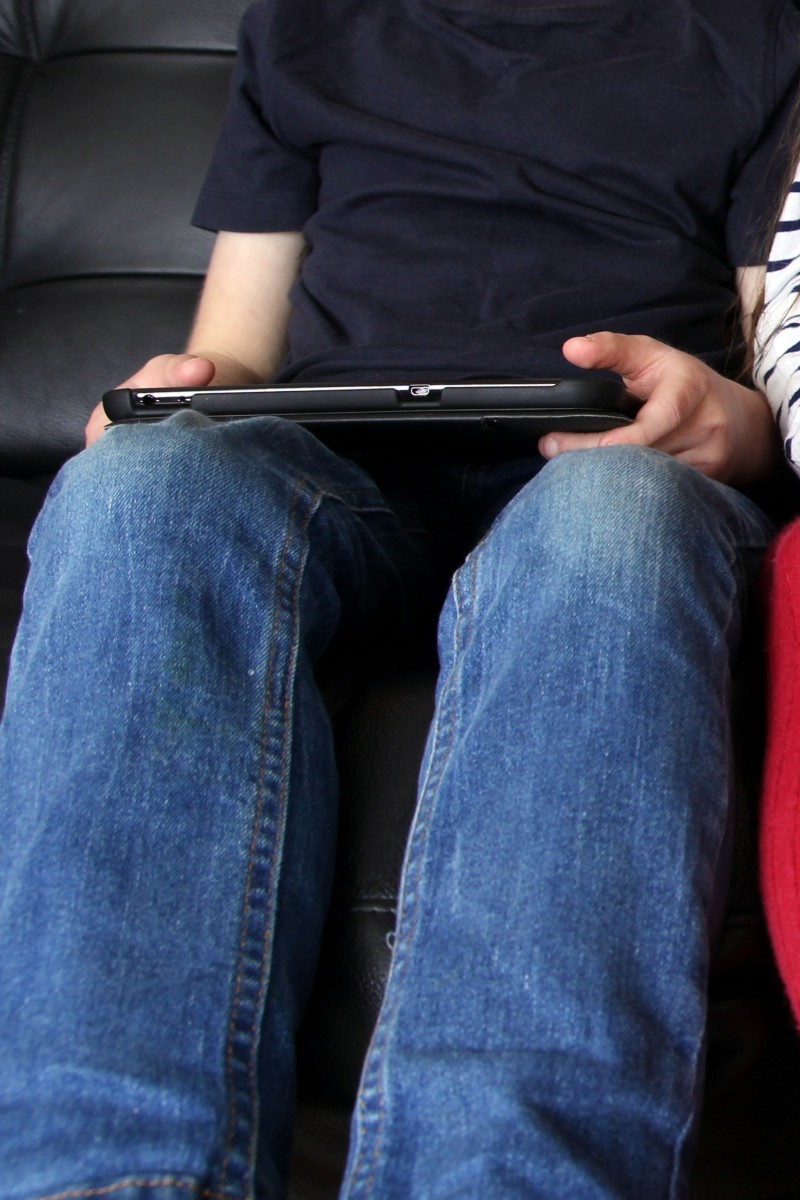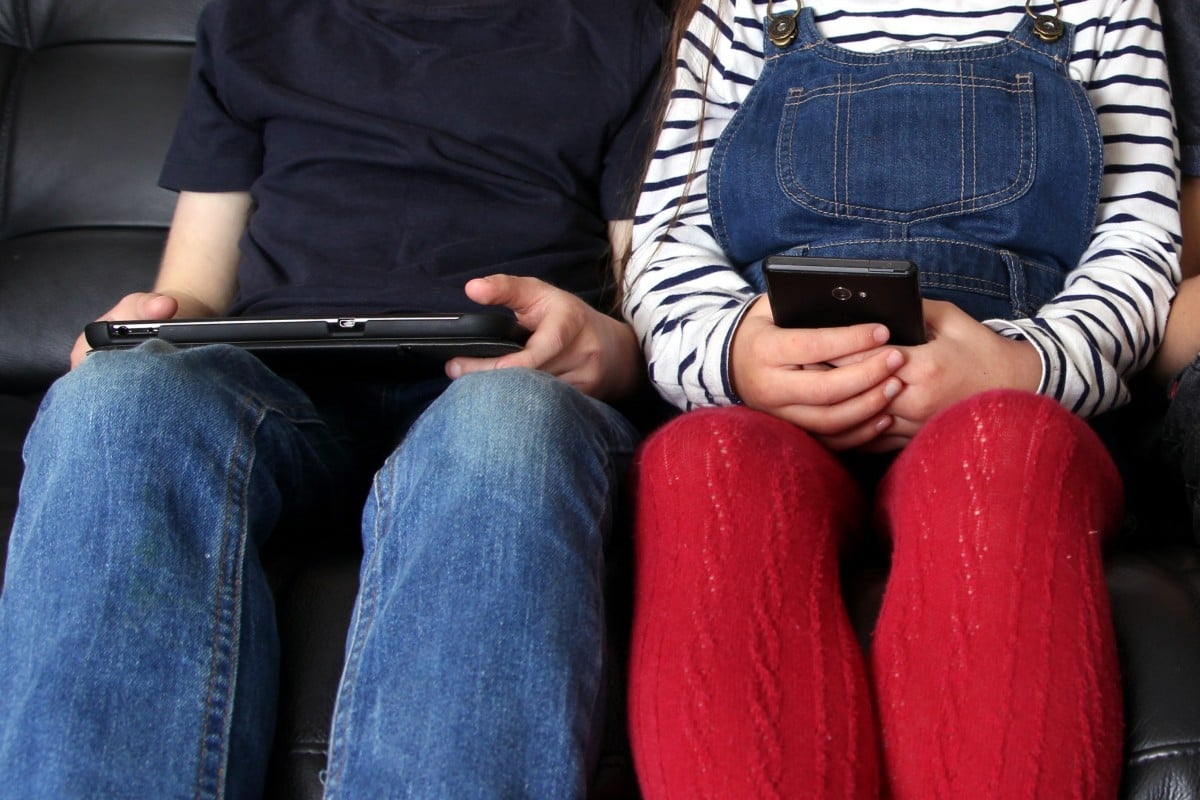
- Study finds that the average time primary school pupils spent on electronic gadgets surged from two hours before the pandemic to seven hours during outbreaks
- Poor sleep quality associated with spike in screen time will affect children’s learning abilities and emotions, researchers warn
 Unable to go outside or go to school, Hong Kong primary school children spent more time on their screens during Covid-19 outbreaks. Photo: Shutterstock
Unable to go outside or go to school, Hong Kong primary school children spent more time on their screens during Covid-19 outbreaks. Photo: ShutterstockThe amount of time Hong Kong primary school students spent looking at screens tripled to seven hours a day during the coronavirus pandemic, a two-year study has found.
Researchers who conducted the study involving nearly 1,900 students said on Monday that poor sleep quality associated with the spike in screen time could affect children’s learning abilities and emotions.
“It will affect children’s studies and worsen the symptoms of hyperactivity or attention deficit, as well as their physical strength and emotions in the long run,” said Dr Patrick Ip Pak-keung of the University of Hong Kong’s paediatrics and adolescent medicine department.
What is insomnia? Causes, prevention, and what to do when you can’t fall asleep
The tracking study, conducted by the university in collaboration with two NGOs, CTFE Social Solutions and InspiringHK Sports Foundation, collected data from 759 primary and 1,140 secondary school students between September 2019 and July 2021.
The pupils were given electronic wristbands that monitored physical activity and sleeping habits for seven days over three time periods: the four months before the coronavirus pandemic struck Hong Kong in January 2020; during the suspension of in-person classes between March and April in 2020; and the partial reopening of schools between October 2020 and July 2021.
The study found that the average time primary school students spent on electronic gadgets surged from two hours before the pandemic to seven hours during outbreaks, while for secondary school students, it rose from eight to nine hours.
“During the pandemic, students had fewer chances to leave their homes. During the peak, in-person classes were suspended, and very few community facilities were open,” Ip said.
“Their daily routines were disrupted. They lost the normal sense of day and night so many children were used to waking up late. Without the pressure of [heading to school], they normally would go to bed late.”
He said as students’ sleep schedule was delayed, they might spend more time online playing video games and watching films, depriving them of the energy they needed for exercise during the day.
The best position for a good night’s sleep
The researchers also found the students only engaged in moderate-to-vigorous physical activity, resulting in sweating and panting, for 30 and 15 minutes respectively every day on average.
Only 5 per cent of all respondents exercised for at least 60 minutes per day, the duration recommended by the World Health Organization.
During the cancellation of in-person classes between March and April 2020, the level of physical activity further dropped by 17 per cent for primary pupils, and by 50 per cent for secondary students.
While students on average slept an hour more during the suspension of face-to-face lessons, they also went to bed an hour later.
Poor sleep could prevent the brain from cleansing toxins from the body at night as well as processing negative emotions and stress during the day, Ip warned, while limited exercise could increase the risk of suffering cardiovascular diseases, stroke and even cancer.
Ip said primary pupils should get 10 hours of sleep and secondary students nine hours, as well as 15 minutes of exercise per day.
He said parents could also set an example by exercising with their children and using electronic gadgets less.
The study was published in peer-reviewed scientific journal The International Journal of Environmental Research and Public Health last month.